Catalog No. CLT0003
Product information
NBGal is a β-galactosidase-activatable near-infrared (NIR) senoprobe utilising an FDA-approved fluorophore. It serves as a qualitative, rapid, and minimally invasive tool for specifically monitoring senescent cells via in-vivo imaging systems. The NBGal senescence detection kit facilitates various applications, including tracking senescence burden, conducting studies on therapy-induced senescence in cancer models, and assessing the efficacy of senolytic treatments in localised areas of mice.
NBGal is poorly fluorescent at 660 nm (λexc = 636 nm), releasing the highly fluorescent dye nile blue (NB) after β-Gal hydrolysed.
Figure 1. a) UV-visible spectra of NBGal probe and NB fluorophore (1.0 x 10-6 M) in H2O-DMSO (0.01%) pH 7. b) Fluorescence spectra of NBGal probe and NB fluorophore (1.0 x 10-6 M) in H2O-DMSO (0.01%) pH 7 both upon excitation at 636 nm.
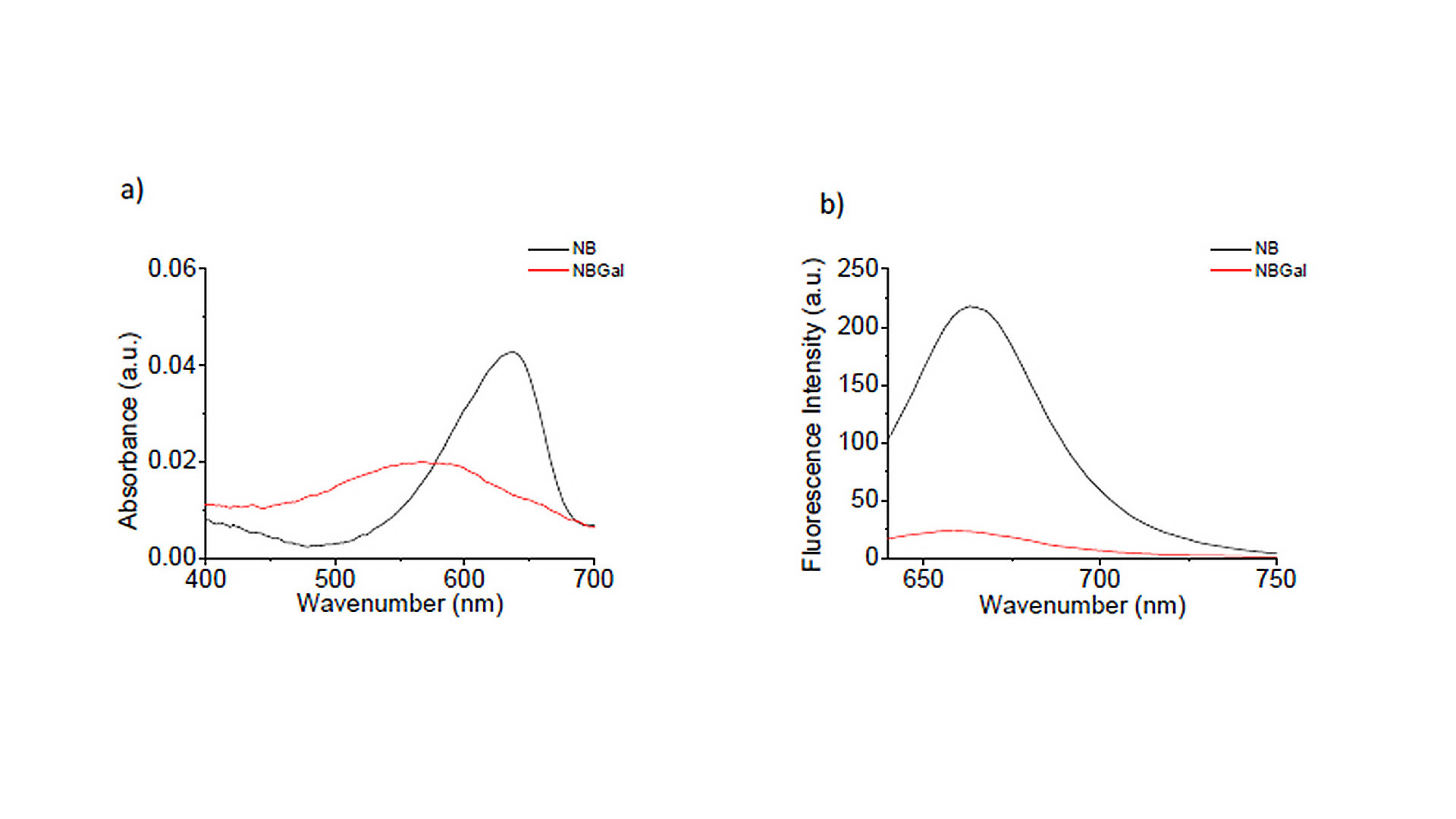
Table 1. Contents and storage.
| Product | Mw (g/mol) | Catalog No. | Amount | No. of assays | Storage* |
| NBGal | 648.2 | CLT0003A | 0.25 mg | 250 (12-well plate/Surface area 3.5 cm2) | -20°C/-80°C
Avoid freeze-thaw cycles Desiccate Protect from light |
| CLT0003B | 10 mg | 10 (number of mice based of 1 mg/mouse administration) | |||
| * When stored as directed, the product is stable for at least 6 months at -20°C from the date receipt. | |||||
-
Before you begin
-
Experimental guidelines
-
Protocols
-
Workflow
-
References
To prepare stock solutions
For cell studies. NBGal is provided as a lyophilized powder. Prepare a 1000 X solution (1.25 mM) by adding 308.5 μL of DMSO direct to the vial. Add 1 μL of this solution directly to 999 μL of the proper culture media. Note: NBGal working solutions should be used promptly. The concentration of NBGal should be optimized for different cell types and conditions.
For animal studies. NBGal is provided as a lyophilized powder. Add 250 μL of DMSO directly to the vial. Add this solution directly to 1750 μL of saline or culture media without FBS. Note: NBGal working solutions should be used promptly. The concentration of NBGal should be optimized for different cell types and conditions.
Platform
Flow cytometry
Excitation 638nm. APC channel
Confocal microscopy
Excitation 638 nm. From Red to Far red channel
IVIS
Excitation filter: 640 nm. Emission filter: 700 nm
Flow cytometry
- Treat your samples as desired. As an example, 50.000-80.000 cell/well can be seeded in a 12 well-plate and leave them overnight to attach.
- Remove any treatment or media and wash them with DPBS.
- Add NBGal working solution for 30 min to 2 h and incubate the samples at 37 °C incubator. Note: Optimal time for incubation needs to be determined experimentally.
- Remove NBGal solution and wash cells with DPBS.
- Resuspend the cells in FACS buffer (10% Hank’s Balance Salt Solution, 10% EDTA, 1% HEPES, sterile H2O) and monitor the fluorescence intensity with a flow cytometer using the filter set stated above.
Confocal
- Seed the cells in a specific chamber for optical imaging. As an example, 10.000-20.000 cell/well can be seeded in an 8 well-plate and leave them overnight to attach.
- Incubate with NBGal working solution for 30 min to 2 h. Note: Optimal time for incubation needs to be determined experimentally. Image the cells immediately.
- Label the nuclei with 10 μg/ml Hoechst for 30 min.
- Wash cells carefully.
Animals
- Prepare your mice model containing senescent cells as convenient.
- Prepare NBGal working solution and inject intravenously (i.v.) 200 μL of this solution in to the tail vein
- Monitor the whole body of mice and observe the fluorescence intensity targeting localised senescent cells. Start monitoring after 30 min after injection.
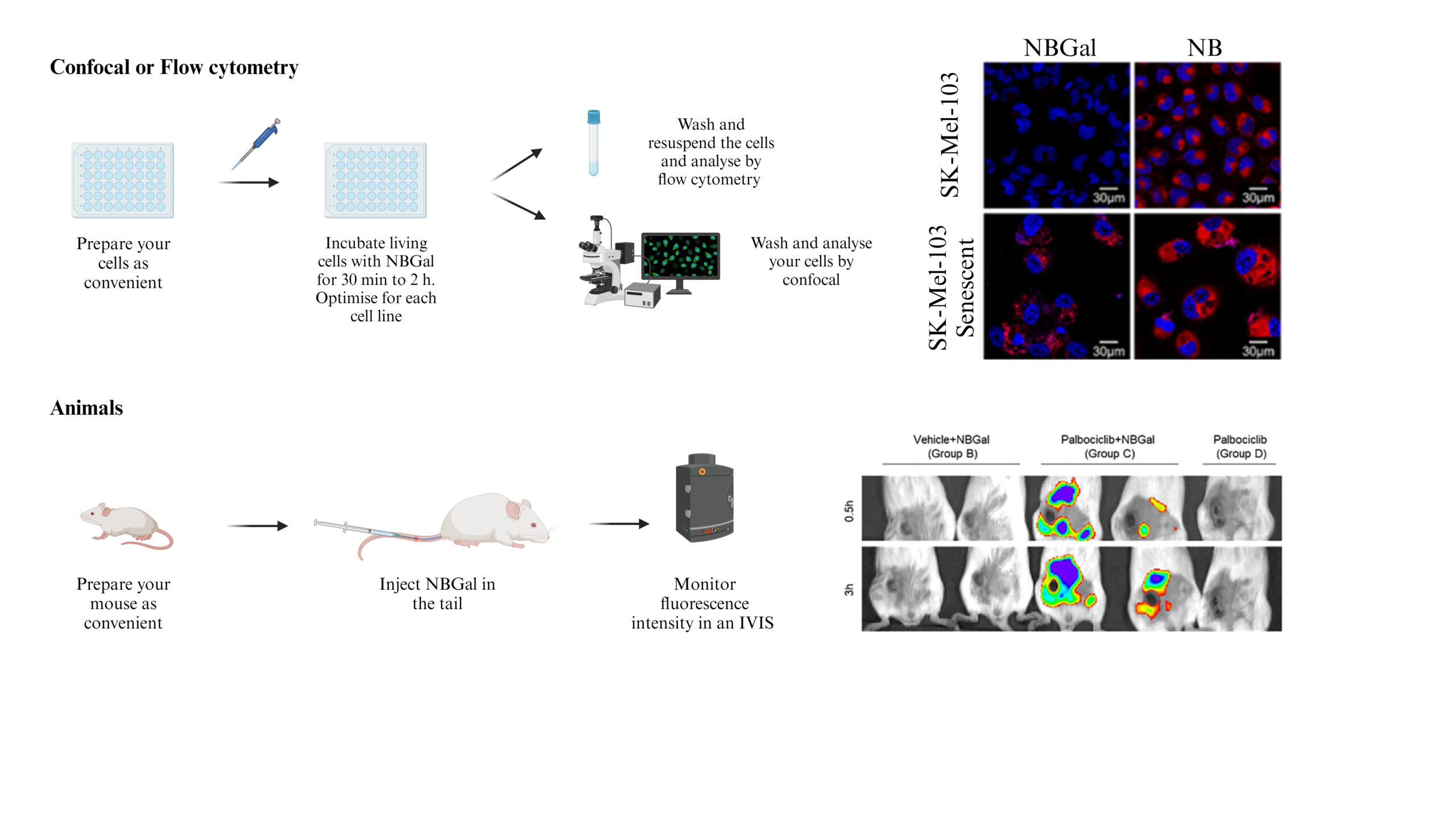
- Lozano-Torres et al. Anal. Chem. 2023, 95, 2, 1643–1651

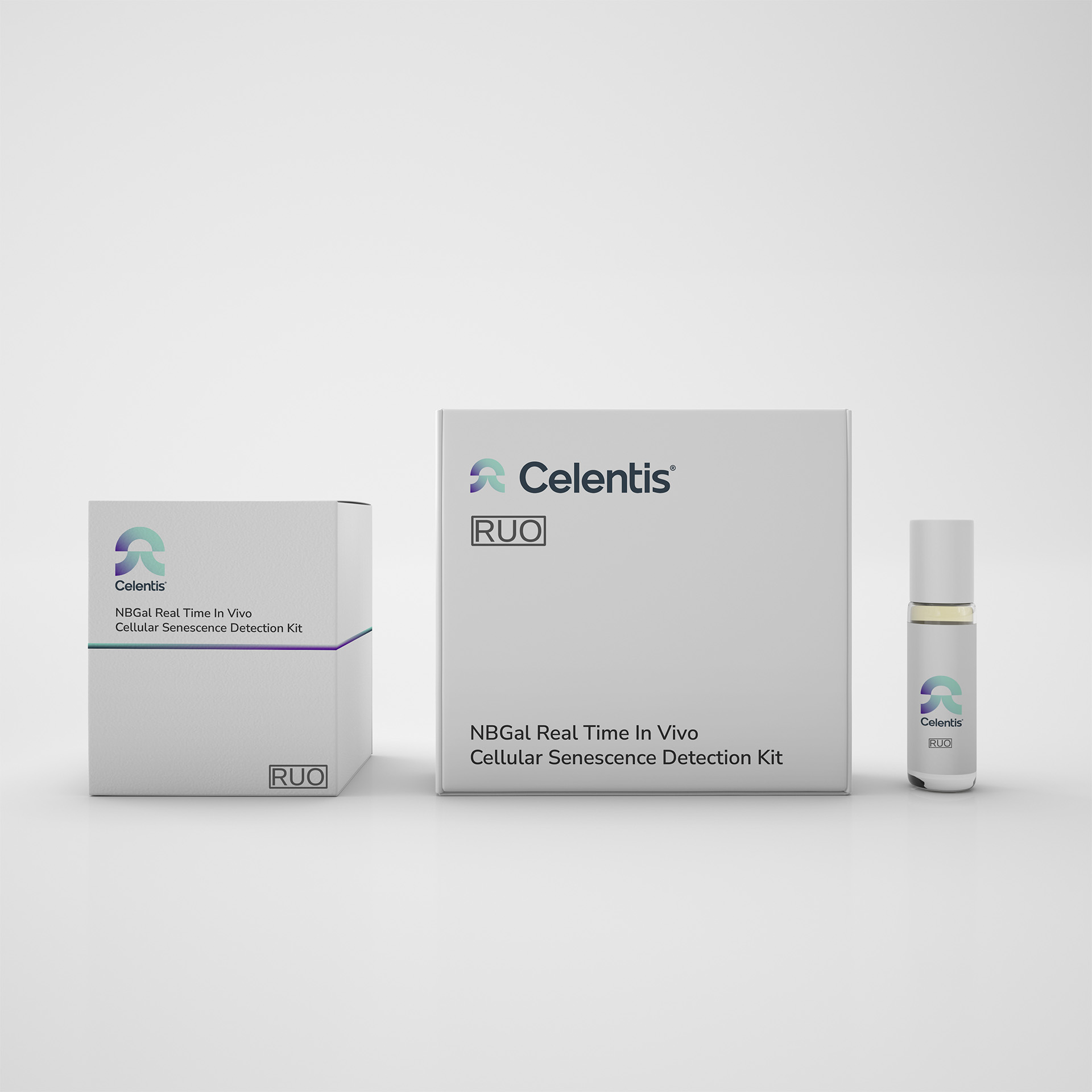
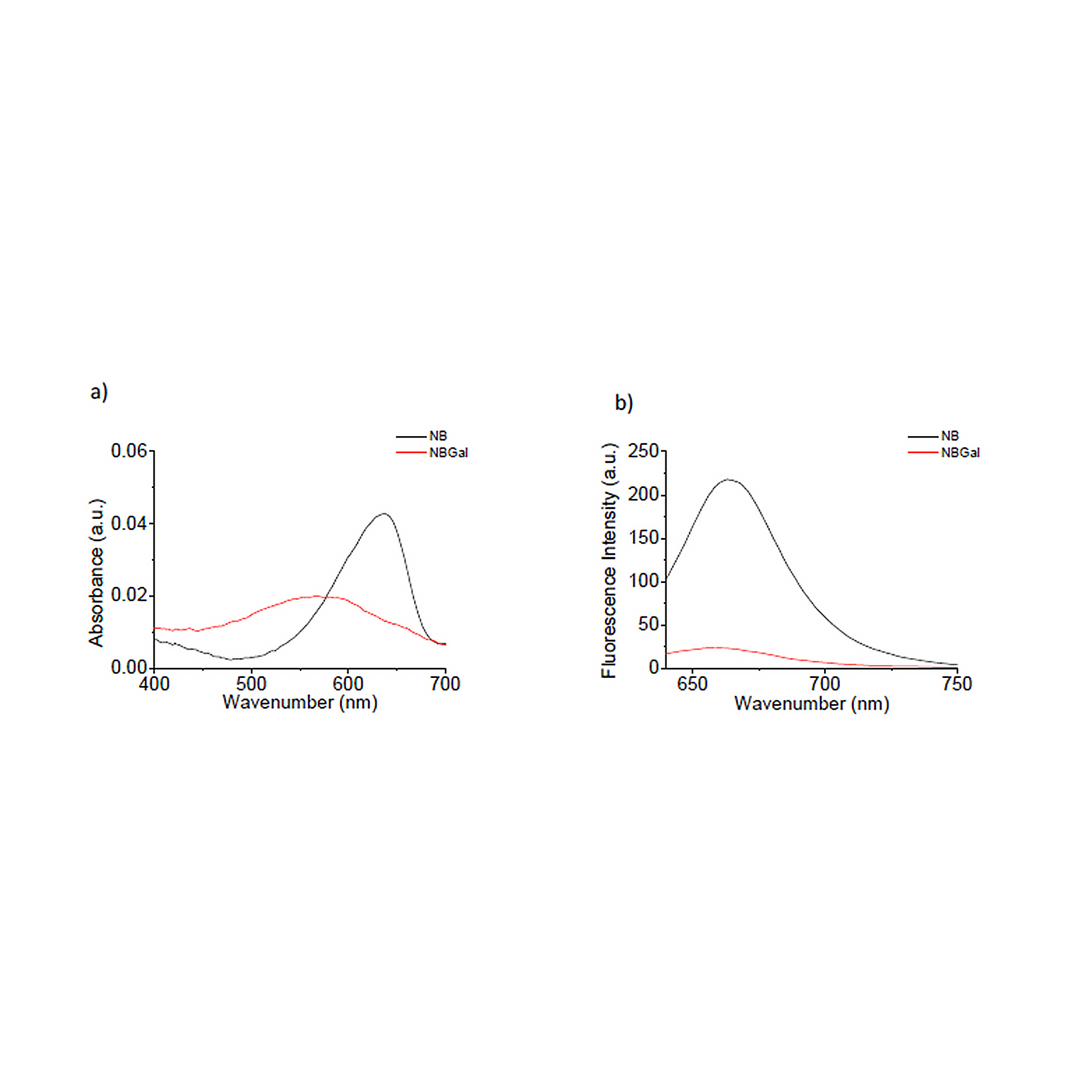
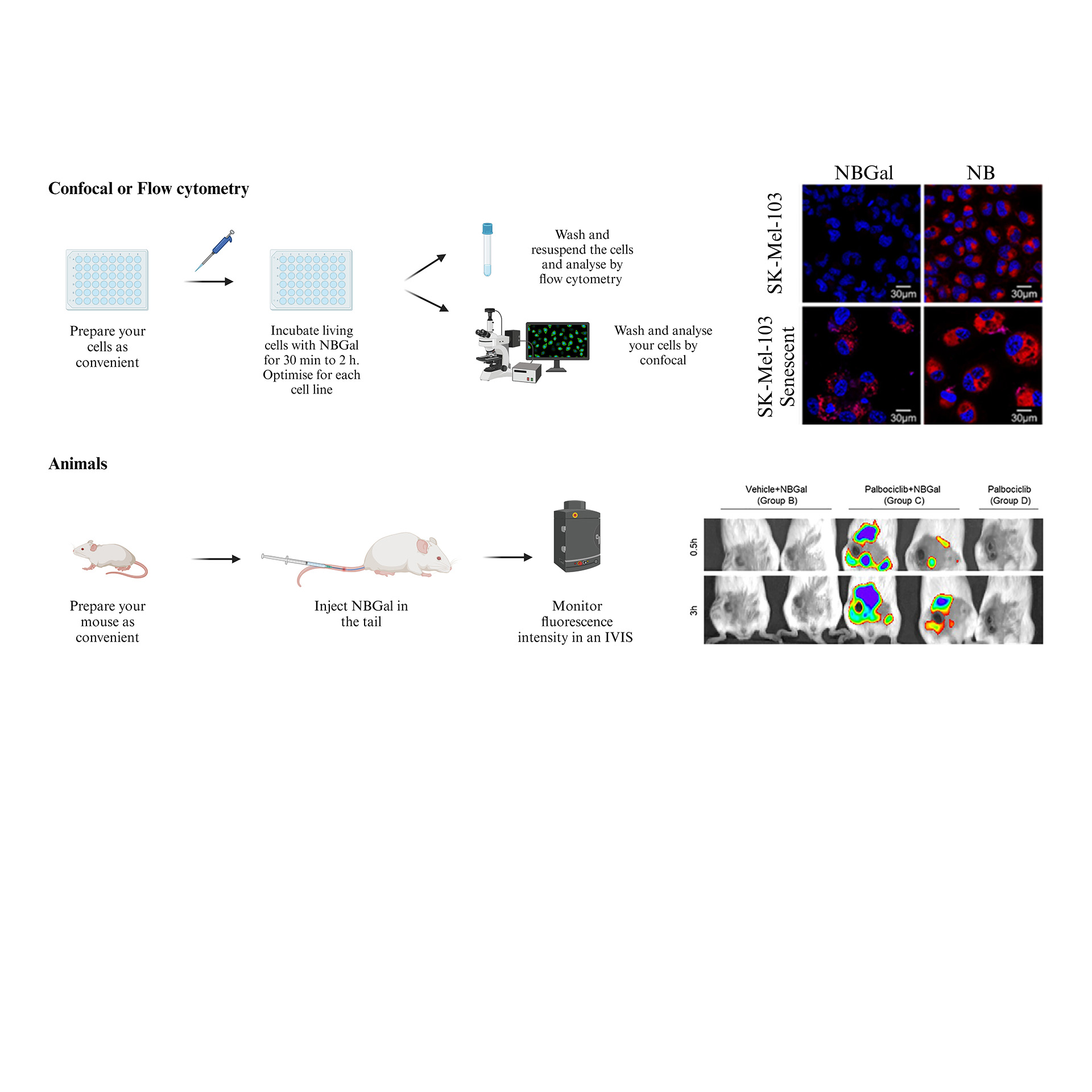
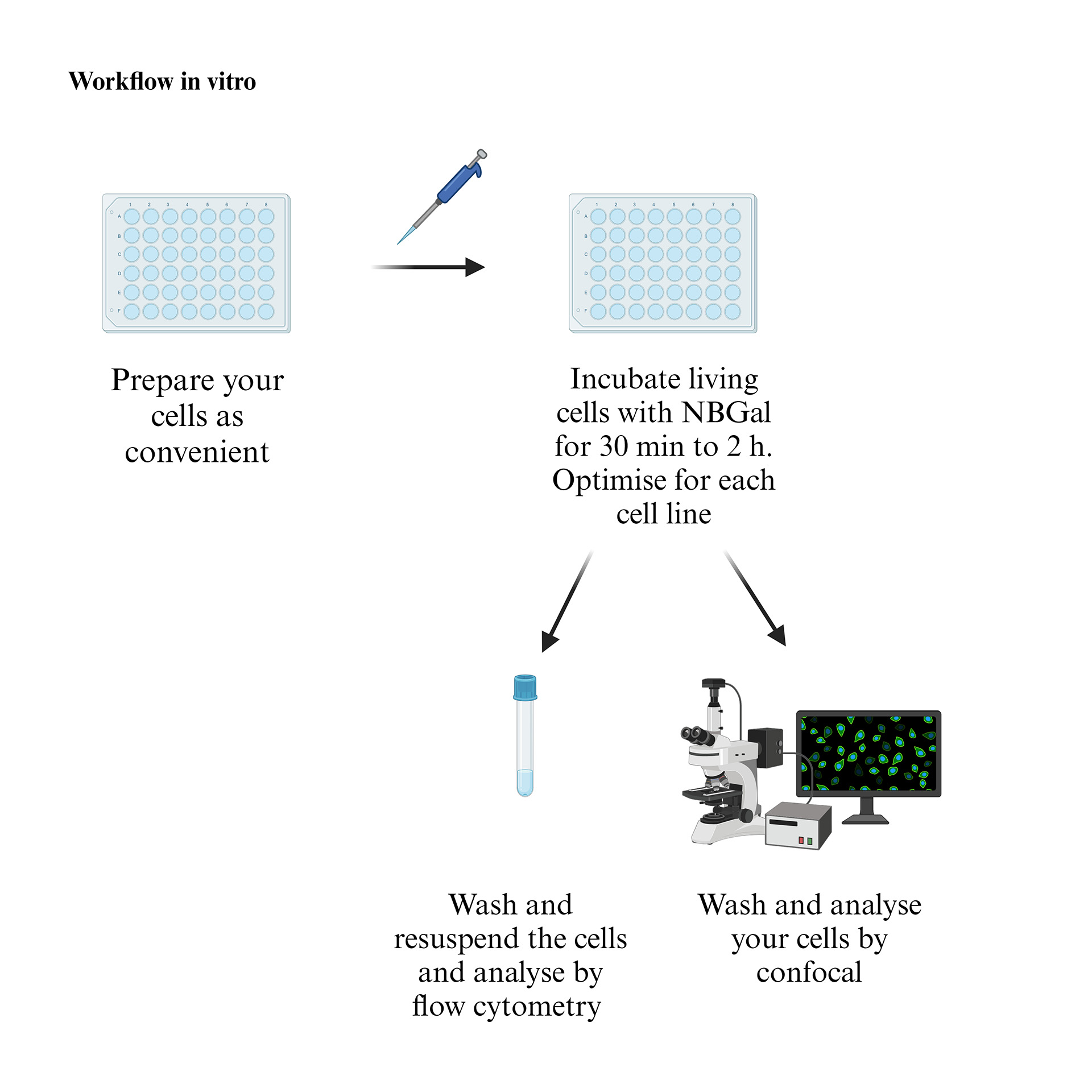
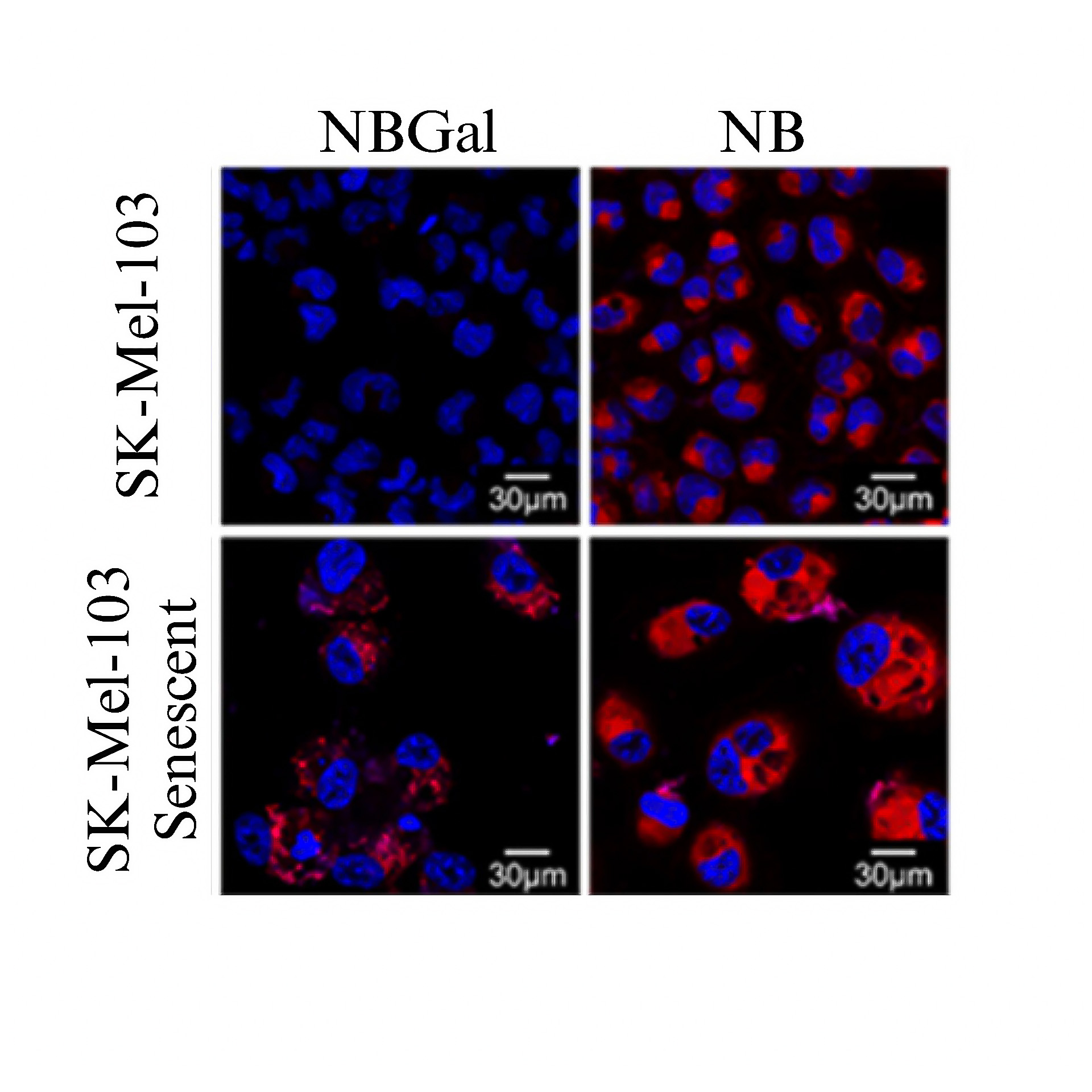
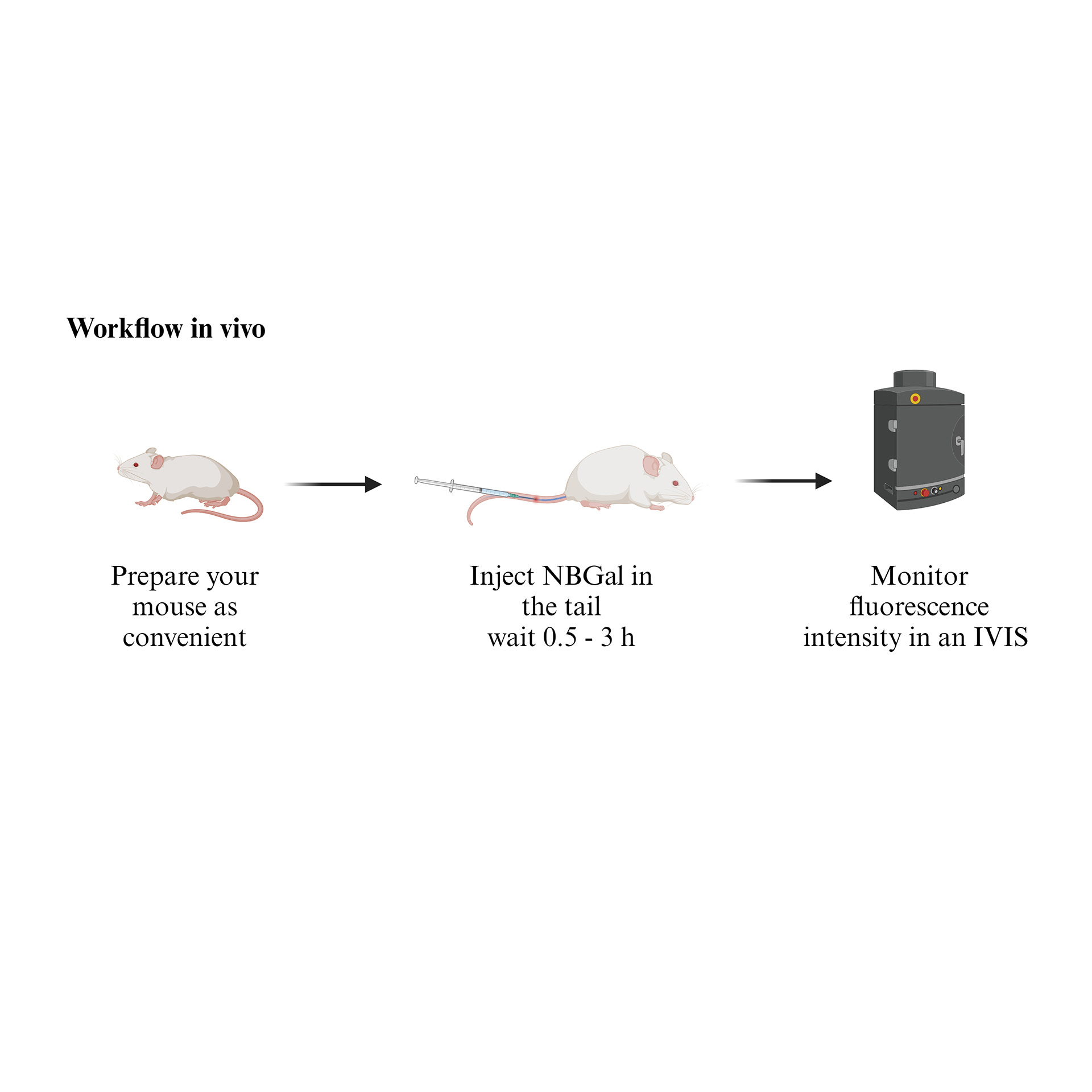
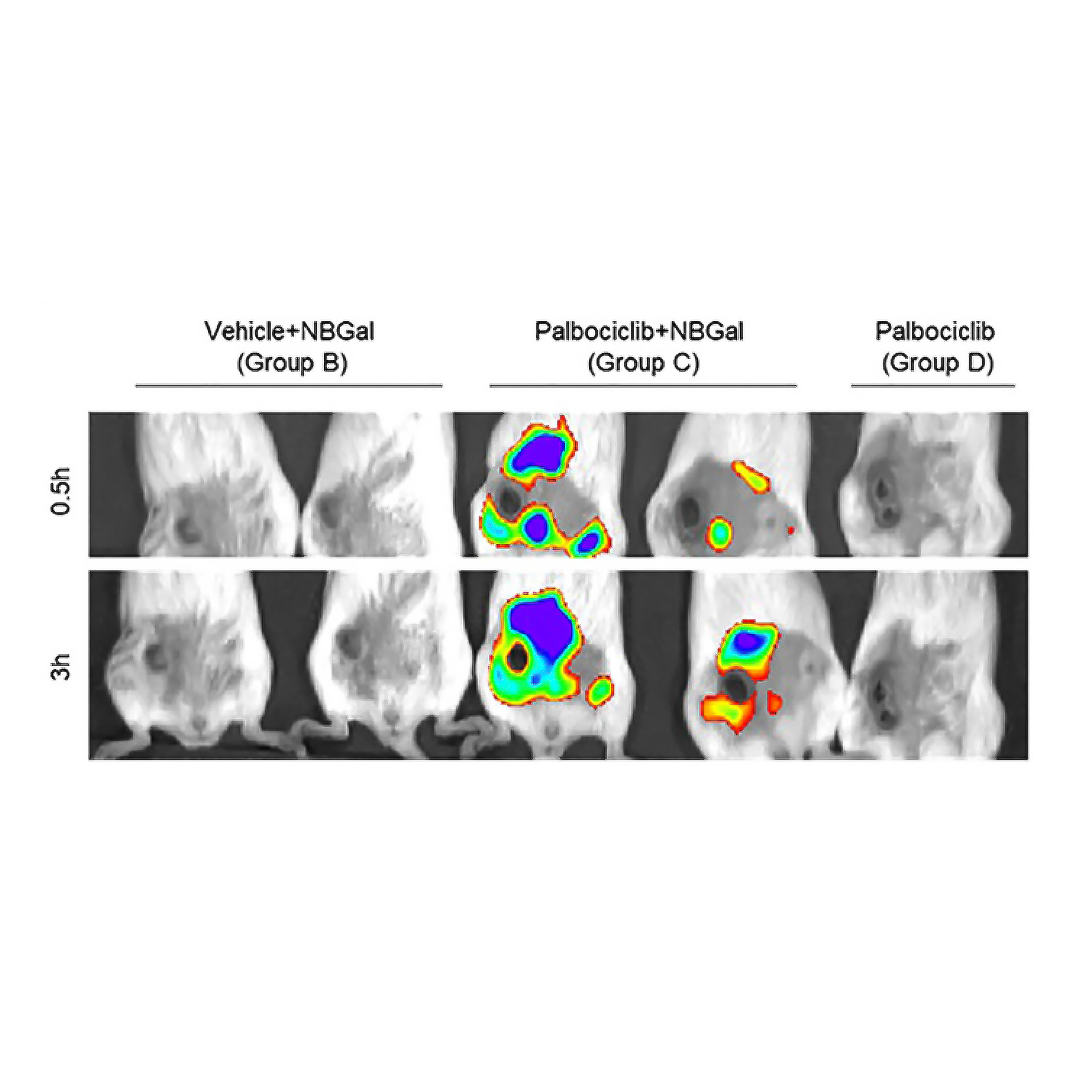
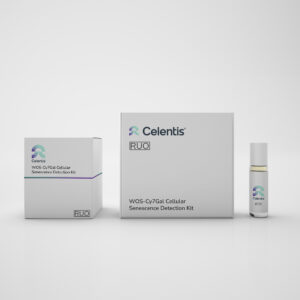
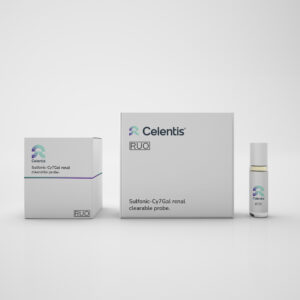
Reviews
There are no reviews yet.